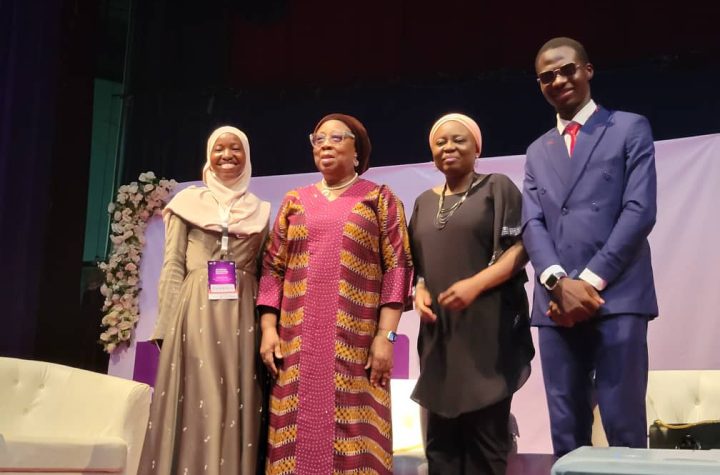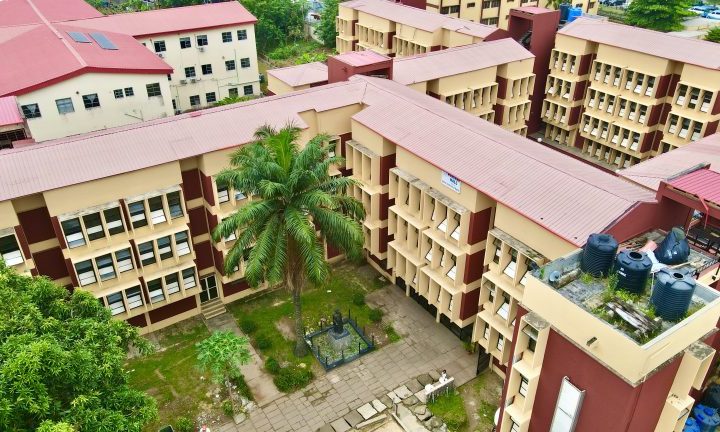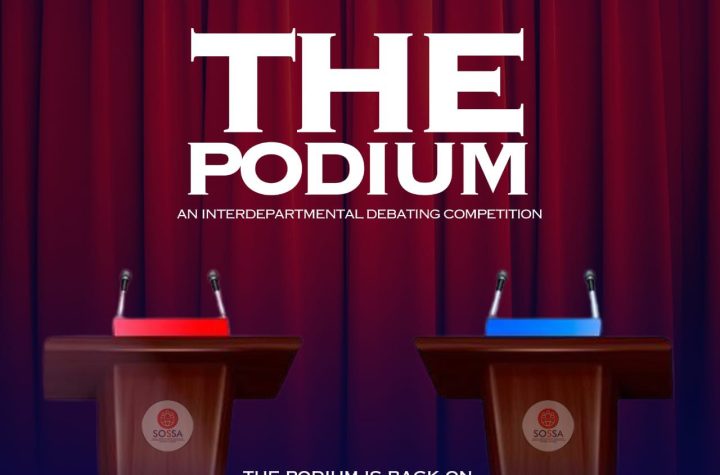
By Eniola Doherty, Oluwatosin Oludele

The world of International Relations and Diplomacy can be vague for the average citizen. If asked to explain both terms, a few would mention how diplomacy has to do with maintaining peace and how international relations are simply the relations between two or more nations. Both answers would not be wrong, but they wouldn’t completely cover the terms; they only scratch the surface.
It is to the effect of delving deeper and educating the students of UNILAG that the first edition of the EU-Africa connectivity programme was launched in UNILAG on Monday, January 9, 2023. There is an invisible gap between the European Union and the continent of Africa; thus, the 8-module Jean Monnet program was designed to bridge this gap through the teaching of courses such as foreign languages like French and German and teaching history of the various countries in the EU that each of the students would represent.
Olufemi M. Saibu, a professor of economics and the program coordinator the Project Coordinator had noted at its inauguration on September 14, 2022, several European countries have several African studies institutes where they gain an understanding of Africa. Still, Africans have very few centres of European studies to understand Europe. Before now, UNILAG students have always been encouraged to participate in international programmes like the Model United Nations (MUN).
Therefore, the program was initiated as an African University at the forefront of championing international collaboration for a united world based on mutual benefits. The programme will run for three years, three weeks per edition.
The programme has conducted two cohorts with the theme: “Bringing Europe Close to Africa,” with the second cohort being version 2.0 of the same theme. Testimonies of the participants make it clear that the vision for which the programme was initiated seems to be delivered perfectly.
According to Priscilla Oboh, a 300-level Mass Communication student and one of the pioneer participants of the first cohort of the programme, she had not been so educated about the European Union (EU), “I just knew it was the European Union. Like every other person, I saw them as “they” and “we,” you know, we are Nigerians and they are here to milk us. That was my perception before I went to the programme… The programme amplified the idea of representing your country. But at the same time, it also helped me realise that it’s beyond the glamour of what you would see on TV. There’s a lot of brain work behind international relations.”
Remember where it was mentioned that most people only know the surface meaning of international relations and diplomacy? Priscilla is not the only one to prove this theory right. Ahmad El-Mubeen Mas’ud, a 300-level pharmacy student, mentioned how the programme broadened his idea of the concept of international relations and diplomacy. “I’ve always perceived diplomacy as a traditional state-to-state activity and something no one can do away with in the usual life activities. But, the programme made me know these are beyond the local view I have of them. It also showcased the multifaceted nature of international relations, stressing collaboration and cultural understanding.”
Apart from conceptual learning, the students are made representatives of each country in the EU and made to learn about the history and culture of those countries, hence promoting cultural and policy learning. The curriculum of the connectivity program is divided into eight modules such that after rigorous learning and training of the participants, Mock Parliaments and Policy dialogues would be held among all countries’ representatives. This made for a platform to assist the students in their public speaking knowledge, building their confidence and critical thinking.
“The programme built and developed many skills in me, which aren’t limited to policy research, presentation, diplomatic negotiations, international relations, knowledge about the EU, communication skills, human management, leadership skills and many more,” Mas’ud stated.
Priscilla, who had picked Poland but was later nominated as the President of the EU parliament, said the programme presented a rigorous learning curve for her, but she pulled through. “As the EU mock parliament president, I had to think about the interest of the EU first. It also helped me to learn how to think on my feet.
Parliament was not the only thing we were doing. We were learning about policies, policy-making, policy drafting, the EU, languages and cultures, public speaking, and data analysis. It was a very packed course and at the same time, we also had to prepare for the mock EU parliament.”
For the students, summer school is like getting an exclusive pass to the ‘behind the scenes’ of a big movie production and seeing how much work goes into a simple five-minute video. “I got to hear things I didn’t know before and understand others that weren’t clear to me. It was more of an unlearning and relearning experience for me. I realised that everybody who comes to a policy-making table is coming there with their interest too so if you are going to be there, you need to put your interest at the front too,” Priscilla noted.
EU-Africa also gives a platform to understand the relations between Africa and other European countries and change your perspective about them. Priscilla was thinking along this line when she said, “We have this misconception in Africa, or let me say we’re living in the past, where we think all our problems are from the colonial masters.
“When the EU brings up a new policy, the average Nigerian is quick to say, ‘They want to use us. They want to colonise us again.’ The truth is, it’s never a one-way thing. They never come to do things without our leaders being aware.” From this point of view, it is safe to say that the leaders of both countries are never subject to one another but rather equal at the table of policy-making negotiations, with both parties protecting the interests of the countries they represent”.
Priscilla Oboh was quite firm on the issue of education. “Free education is one policy I’d like to import from Poland to Nigeria. In Nigeria, we have this problem of free education slowly becoming a business venture for the government and it’s not supposed to be so, especially if we are still paying taxes and all. If you say tuition is free, then do not make us pay exorbitant fees for the things that the government is supposed to take care of. Education should be a priority, that’s all I’m saying.” Surely, many would share this conviction with her.
The EU-Africa connectivity programme also has the effect of igniting, in the students, the flames for international relations, as in the case of Priscilla Oboh. Before the programme, she was not enthusiastic about international relations, but she joined the programme just because she saw an opportunity. Now, she is interested in it and is currently doing a self-internship in the field.
The Module project, which will take place at the University of Lagos for three years, also allows students to contribute to peer-reviewed research for publication in a rated and index-ranking journal in Europe or Africa after the conclusion of the project.
The programme is open to students with little contact with European studies and the EU throughout their education. UNILAG students, irrespective of their courses of study, are encouraged to take the opportunity to register for this programme whenever a new cohort begins. Whether you are looking towards a career in international relations and diplomacy, or maybe you want to try out new things, learn new skills, take a step back into the history of a different country other than the ones you know, or build your confidence through public speaking and networking. If you’re in any of the categories above, the EU-Africa connectivity programme is the right place for you to be.





More Stories
Podium Maiden Edition Ends with Mass Communication Win
Showcasing the charming spots in UNILAG
FG needs a win-win streak to end ASUU strikes